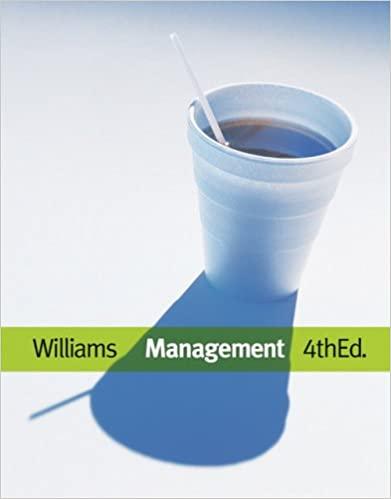Answered step by step
Verified Expert Solution
Question
1 Approved Answer
Critical Analysis of a research Paper A critical analysis paper asks the writer to make an argument about the research paper. The goal is

Critical Analysis of a research Paper A critical analysis paper asks the writer to make an argument about the research paper. The goal is twofold: one, identify and explain the argument that the author is making, and two, provide your own argument about that argument. One of the key directions of these assignments is often to avoid/minimize summary The aim of this assessments is to critically review the article's contribution to the change management and theory. Structuring a Critical Analysis Paper Most critical analysis papers begin with a short summary of the work and then dive into the argument. Since most of these paper assignments are short, it is important to be concise in all parts of your analysis. Writing an outline (and following it) is crucial to remain focused on your argument and avoid summary or irrelevant description. Following is a sample outline for a critical analysis paper: I. Introduction a. Identify the work being criticized b. Present theory - argument about the work c. Preview your argument - what are the steps you will take to prove your argument II. Short summary of the work a. Does not need to be comprehensive - present only what the reader needs to know to understand your argument III. Your argument a. Your argument will likely involve a number of sub-arguments-mini-theses you prove to prove your larger argument true. For example, if your paper was that the author's presumption that the world will soon face a "clash of civilizations" is flawed because he inadequately specifies his key concept, civilizations, you might prove this by: i. Noting competing definitions of civilizations ii. Identifying how his examples do not meet the example of civilizations iii. Argue that civilization is so broad and non-specific that it is not useful b. This should be the bulk of the paper - Your workshop facilitator wants to read your argument about the work, not a summary. IV. Conclusion a. Reflect on how you have proven your argument. b. Point out the importance of your argument (beyond it being a requirement for passing the class) c. Note potential avenues for additional research or analysis
Step by Step Solution
There are 3 Steps involved in it
Step: 1

Get Instant Access to Expert-Tailored Solutions
See step-by-step solutions with expert insights and AI powered tools for academic success
Step: 2

Step: 3

Ace Your Homework with AI
Get the answers you need in no time with our AI-driven, step-by-step assistance
Get Started


